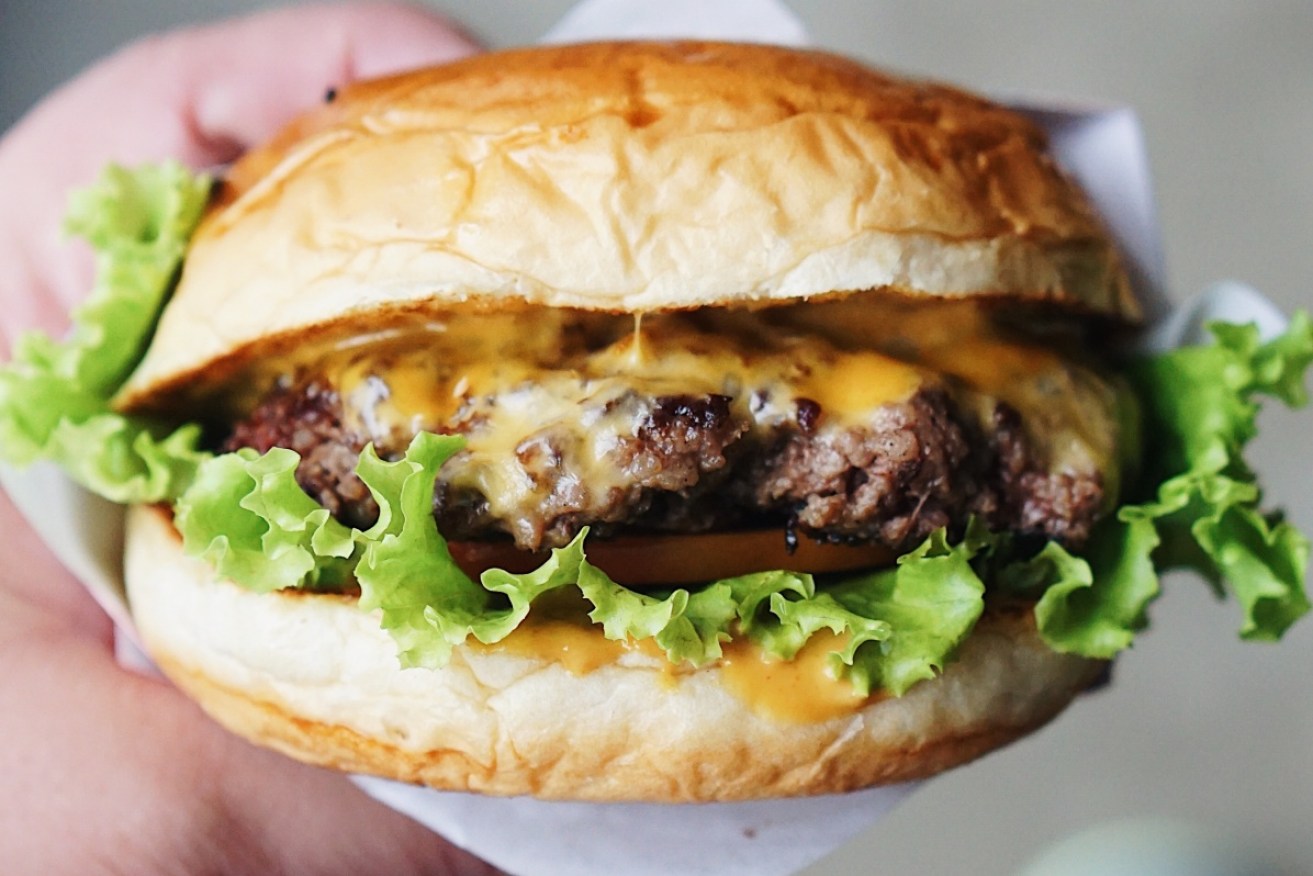Why vegetarian burgers have twice the salt and low-fat yoghurts are full of sugar


Veggie burgers can have twice the salt, as well as more fat, carbs and sugars. Photo: Getty
Just because a product is labelled as vegetarian, all-natural, low fat or gluten-free does not necessarily mean it is the healthiest item on the shelf, nutritionists and dietitians have warned.
Many packaged products with these kinds of health claims may very well be low in fat or low in sugar, but this is often at the expense of other important nutrients.
In one example, The New Daily found that Hungry Jack’s new vegan burger contains more than twice the amount of salt than its original cheeseburger – 1490mg compared to 614mg.
It also has more fat, carbs and sugars than its meat-based alternative.
This is not uncommon when it comes to meat-free substitutes according to UK research, which found that vegetarian burgers and sausages contained as much salt as three to four packets of chips.
Australians eat up to 10 grams of salt every day, on average – twice the daily intake recommended by the World Health Organisation – with the majority coming from added salt in processed food.
Eating too much salt can lead to high blood pressure which is the leading risk factor for heart disease and stroke.
Increased awareness has prompted the federal government to this year commit to a 30 per cent reduction in salt intake by 2025.
But salt content is not the only problem. Many low-fat or gluten-free products also contain high amounts of other undesirables, such as fat and sugar.
Jalna’s low-fat vanilla yoghurt does contain half the amount of fat, but more sugar and less calcium.
Meanwhile, Abbott’s gluten-free mixed seeds bread has more sugar and double the fat than its regular mixed seeds loaf.
Clare Farrand, a nutritionist and salt-reduction researcher from The George Institute, said foods labelled as ‘fat-free’, ‘all natural’, ‘no added sugar’ and ‘gluten-free’ are potentially “misleading” consumers.
She said that while a gluten-free diet or low-fat diet may be positive for consumers with certain health conditions, it “does not mean it’s healthier”.
“These products may still contain hidden salt, fat and sugar,” Ms Farrand said.
Leading nutritionist and dietitian Dr Rosemary Stanton said these terms have largely become marketing jargon.
“These items are sold by clever marketers who believe that increasing the variety will increase sales or that the ‘supposedly’ healthier version can be sold at a higher price,” she said.
Nicole Dynan, a dietitian and owner of The Good Nutrition Co, said that when manufacturers reduce the amount of a certain nutrient, the overall taste of the product may suffer as a result.
“Fat and sugar are the primary components of food that make it tasty. That’s why we generally love chocolate,” she told The New Daily.
“Sometimes manufacturers increase sugar in low-fat products to maintain a good taste for consumers.
Gluten-free, vegetarian, low fat or low sugar products are not necessarily healthier options compared to their standard alternatives.
“In general, 4g is equivalent to one teaspoon of sugar. So if a low-fat yogurt contains 16g sugar per serve, you can ask yourself if you are prepared to eat four teaspoons of sugar in one small 200g tub.”
Ms Dynan said manufacturers have, more recently, been working to gradually reduce the salt in some products, such as Vegemite.
“But it can’t happen overnight or people will notice the change and reject the product,” she said.
How to avoid excess salt and sugar
Ms Dynan’s tips to minimise your intake of added salt and sugar:
- Cook and bake from scratch with whole foods where possible
- Avoid pre-made sauces, which are usually high in salt and sugar
- Choose natural plant-based protein alternatives, such as lentils, beans and chickpeas, instead of an imitation meat option
- Choose gluten-free grains such as rice, quinoa, teff, millet, amaranth and buckwheat
- Increase intake of fruit and vegetables in your diet and use these in baking to reduce the need to add refined sugar
- When buying packaged foods for convenience, always check the label
Ms Farrand said a free app called FoodSwitch allows consumers to scan the barcode of a product and compare its nutritional value with similar alternatives.












